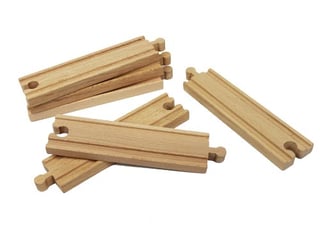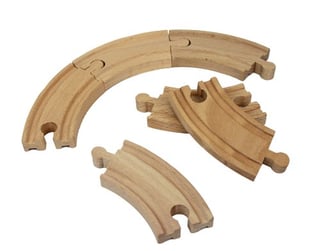My little sister asked me to join the wooden track pieces (train) together, after a while, I found that she had spread the train tracks all across the floor.
You asked me to put these together and you've broken them already?
(Not literally "broken", I want it to mean that the track is broken; all the pieces of the track are spread all over the floor and not as a complete train's track)
What is a natural way to express their two bold words? ("Put together" And "Break")
And if it is not spread all over the floor, it's something like this:


